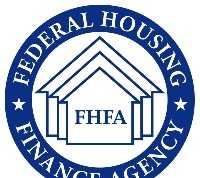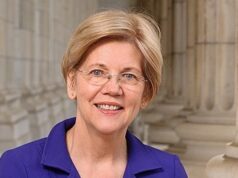Housing leaders, advocates, and officials unite in Detroit to advance Black homeownership
Detroit, Mich. – RealEstateRama – The Black Homeownership Collaborative, a coalition of more than 100 organizations and individuals committed to creating 3 million net new Black homeowners by the end of 2030, brought together ??national and local housing advocates, elected officials, and local leaders at the Second Ebenezer Church to recognize the fourth anniversary of its 3by30 initiative and to discuss strategies to increase Black homeownership in Detroit and across the country. Addressing attendees, Representatives Debbie Dingell (D-MI-6), Rashida Tlaib (D-MI-12), and Shri Thanedar (D-MI-13) spoke about the importance of addressing the racial homeownership gap.
“Home ownership is considered a central part of the American dream – it means having a secure place to raise a family and care for loved ones, and it’s a path to economic security and generational wealth, said Congresswoman Dingell. “But today, there is a 30-point homeownership gap between white and black Americans. We must address the historic and systemic barriers that have resulted in this gap, and develop the tools, resources, and policy to close it. I’m thankful to the Black Homeownership Collaborative for their tireless work toward this goal.”
Congresswoman Tlaib noted that Wayne County, Mich., the largest county in the state, has “lost more Black homeownership than any county in the country…This is where we house a city of 80% Black families and homeownership is how we built up wealth among our Black community.” She also spoke to the importance of federal funding for housing, fair housing, and the importance of rental and homeownership retention.
“There’s no doubt inequity exists. There’s no doubt we have systemic issues that need to be addressed,” said Congressman Thanedar. “Through Congress, I am sponsoring bills to create opportunities for homeownership and access to down payment assistance across the country.”
Since its launch in 2021, the Black Homeownership Collaborative has seen the national Black homeownership rate rise from 44 percent to 46.5 percent. In 2023, the rate reached 50.8 percent in the Detroit metro area and 53.4 percent within the city itself. Although the Black-white homeownership gap remains substantial in the Detroit metro area, it narrowed by six percentage points—from 35.5 to 29.5 percentage points. Detroit’s citywide gap was notably smaller at just 6.2 percentage points in 2023, outperforming both the metro area and the national average. At the conference, speakers and panelists explored how federal and local public policies and housing industry leaders in cities like Detroit can help drive progress in expanding Black homeownership.
“Today’s racial homeownership gap is the legacy of past systemic practices we have never adequately addressed,” said Bryan Greene, co-chair of the Black Homeownership Collaborative and Vice President of Policy Advocacy at the National Association of REALTORS®. “The gap will not close on its own. The 3by30 initiative offers practical, measurable solutions to close this gap and open the door to millions who have long been shut out of homeownership.”
“The Black Homeownership Collaborative is dedicated to developing innovative tools and resources to help close the Black homeownership gap. One example is our new, groundbreaking mortgage calculator, designed to empower Black Americans with the information they need to achieve lasting homeownership,” said Cy Richardson, co-chair of the Collaborative and Senior Vice President for Programs at the National Urban League. “Expanding Black homeownership is vital to building economic resilience, strengthening neighborhoods, and laying the groundwork for generational wealth and opportunity.”
The 3by30 plan identifies a set of seven tangible, actionable, and scalable steps that will make it possible to increase Black homeownership by 3 million net new homeowners by 2030; an increase of more than 10 percentage points in the Black homeownership rate, bringing it to a level never previously attained. The seven steps are focused not only on bringing in new homeowners but also on sustaining existing homeowners.
“Bridging the Black homeownership gap demands intentional strategies to confront long-standing systemic barriers,” said Dr. Courtney Johnson Rose, co-chair of the Black Homeownership Collaborative and president of the National Association of Real Estate Brokers. “Through the 3by30 initiative, the Black Homeownership Collaborative is focused on tackling these issues directly to ensure Black Americans have equitable access to homeownership, the ability to build economic strength, and the opportunity to help their communities thrive.”
The Black Homeownership Collaborative is led by a steering committee of executives from Hope Enterprise Corporation, the Mortgage Bankers Association, NAACP, National Association of REALTORS®, National Association of Real Estate Brokers, National Fair Housing Alliance, National Housing Conference, and the National Urban League, with research by the Urban Institute.
To learn more about the Black Homeownership Collaborative’s 3by30 initiative, visit www.3by30.org, and click here to view its Annual Report.
###
About the National Housing Conference (NHC): Founded in 1931, the National Housing Conference is the oldest and broadest housing coalition in America. NHC is a diverse continuum of affordable housing stakeholders who convene and collaborate through dialogue, advocacy, research, and education, to develop equitable solutions that serve our common interest—an America where everyone is able to live in a quality, affordable home in a thriving community. Politically diverse and nonpartisan, NHC is a 501(c)3 nonprofit organization. To learn more about NHC, visit www.nhc.org.
Contact:
Kara Beigay
202.466.2121 ext 284

















